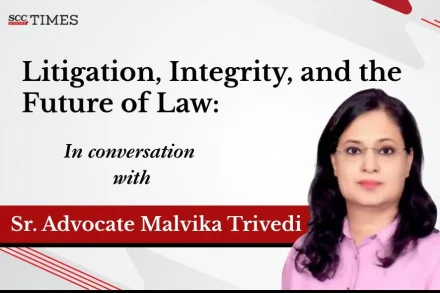
Litigation, Integrity, and the Future of Law: In conversation with Senior Advocate Malvika Trivedi
Interviewed by Shaleen Bareja

Interviewed by Shaleen Bareja
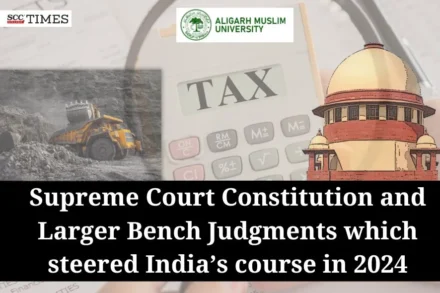
The Supreme Court’s 2024 decisions have marked a significant turning point in the country’s legal and constitutional framework. Key rulings delivered by Constitutional Benches on Electoral bonds, private property, royalty as tax, AMU’s minority status, sub-classification within reserved categories, etc. have left an impact on fundamental rights, political transparency and tax regime, shaping India’s socio-political landscape, influencing both public policy and the broader democratic process.

The Court cannot overlook that a mere affidavit, lacking the force of a formal order, was relied upon to deny fundamental privileges under OCI status. To proceed on such tenuous grounds, without proper procedural fairness, would set a concerning precedent, one that risks eroding the unique rights granted under the Citizenship Act.
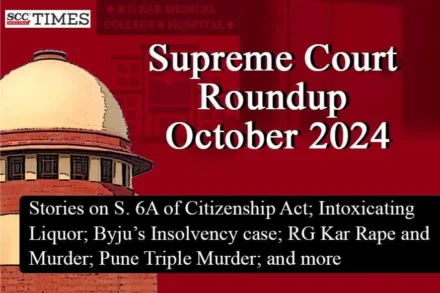
This roundup revisits the analyses of Supreme Court’s judgments/orders on Section 6A of Citizenship Act; Intoxicating Liquor; Byju’s Insolvency case; Delhi Education Rules; Brij Bihari Prasad murder case; Pune Triple Murder case; RG Kar Rape and Murder Case; and more. It also covers Top stories; Never reported Judgments; Cases Reported in SCC Weekly in October.
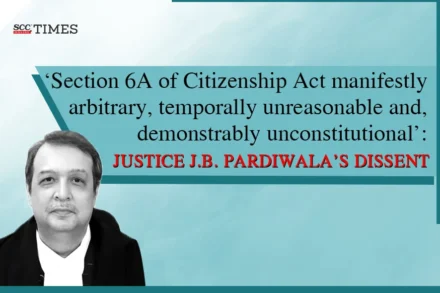
“Section 6A of the Citizenship Act, which was meant to dispel and discourage incoming illegal immigrants, turned out to be a beacon for the illegal immigrants from Bangladesh to come into Assam, by taking advantage of the poor mechanism which is prone to open abuse.”
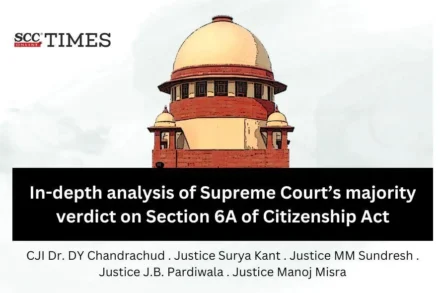
Supreme Court affirmed that the cut-off date of 25 March 1971 is rational as on the said date, Pakistani Army launched Operation Search Light to curb Bengali nationalist movement in East Pakistan. The migrants before the operation were migrants of partition towards which India had a liberal policy. Migrants from Bangladesh after the said date were migrants of war and not partition.
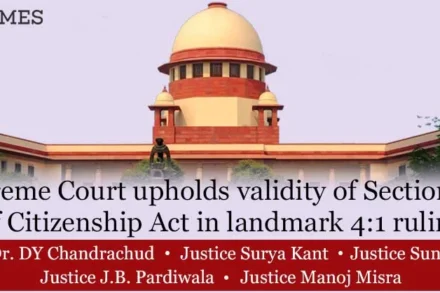
Section 6A of the Citizenship Act, 1955, permits foreign migrants of Indian origin who entered Assam between 01-01-1966, and 25-03-1971, to apply for Indian citizenship. This provision was introduced in 1985 as part of the Assam Accord, an agreement between the Government of India and leaders of the Assam movement, which aimed to address the concerns over illegal immigration from Bangladesh

“The child cannot be left stateless”, said the Court while holding that the minor petitioner was entitled to be issued a passport on the basis of her Indian citizenship.

Decisions along with the speaking orders passed by the Foreigners Regional Registration Office to reject the OCI applications of the Russian nationals were quashed.

The present case is one where there are special circumstances, for the Central Government to use the enabling powers, as contemplated under Section 5(4) for favorably considering grant of citizenship to the Petitioner.
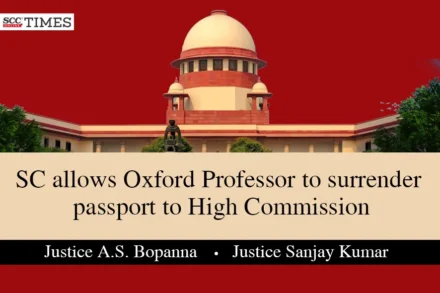
The Oxford Professor’s citizenship was involuntarily and automatically terminated by operation of Section 9 of the Citizenship Act, 1955 upon acquisition of British Citizenship. It was submitted that ‘renunciation’ of citizenship is different from ‘termination’ and Sections 4(1), 4(1A) and 9(1) of the Act, 1955 were challenged for being ultra vires to Articles 14, 19, 21, and 25 of the Constitution.
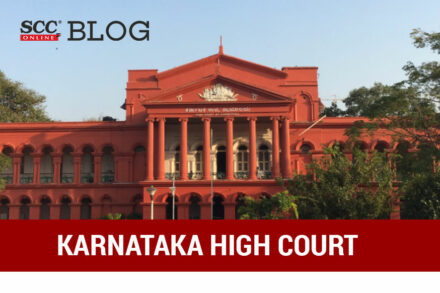
Prominent Kannada actor Chatan Kumar, was granted conditional interim protection from cancellation of his OCI card until the next date of hearing, which has been set in June.
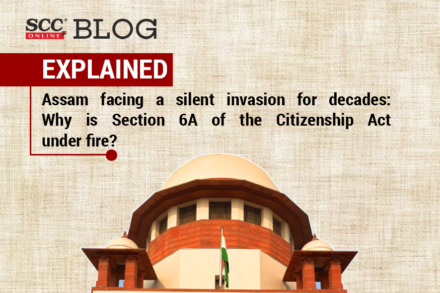
“If the said Section 6-A of the Citizenship Act, 1955 is not struck off being ultra vires, it would be impossible to free Assam from the clutches of illegal immigrants, who have entered Assam in view of the impugned provisions of the aforesaid amended Act.” the petitioner’s submitted.
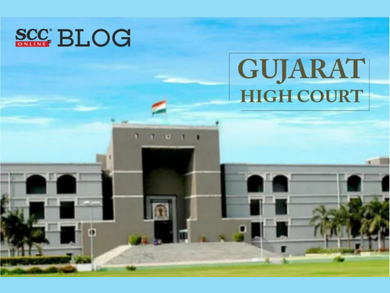
“The enjoyment of the highest attainable standard of health is one of the fundamental rights of every human being without distinction of race, religion, political belief, economic or social condition”
Patna High Court: The Division Bench of Sanjay Karol, CJ and S. Kumar, J., addressed the vital issue of citizenship with respect

Constitutional Court of South Africa: 9-Judge Bench of the Constitutional Court unanimously decided upon the constitutional validity of Section 2(1) of the
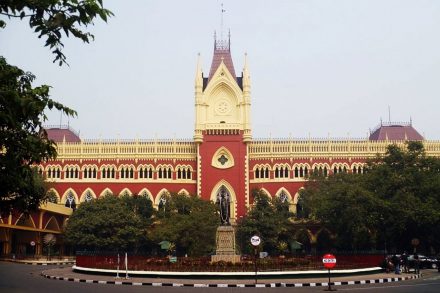
Calcutta High Court: Sabyasachi Bhattacharya, J., while addressing a petition regarding the citizenship of a person, held that, “An application has to
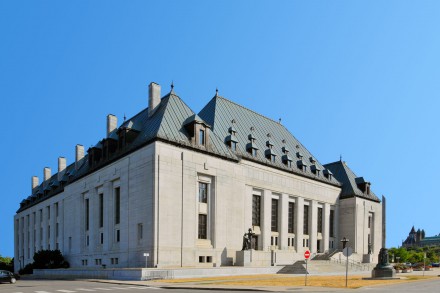
Supreme Court of Canada: A Full Bench of Wagner, CJ. and Moldaver, Grason, Cote, Brown, Rowe and Martin, JJ. is pertaining to

Meghalaya High Court: While considering three petitions addressing the issue wherein the petitioners (they being children of Tibetan parents and born in